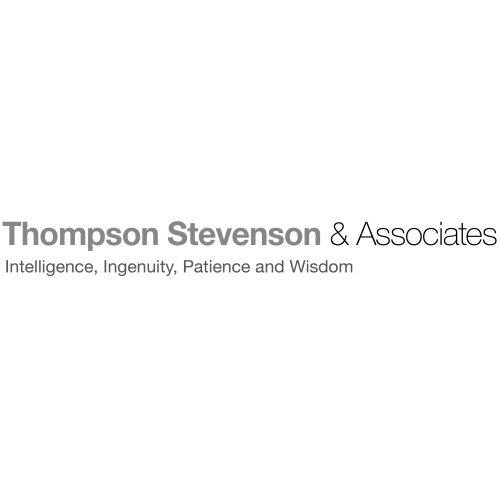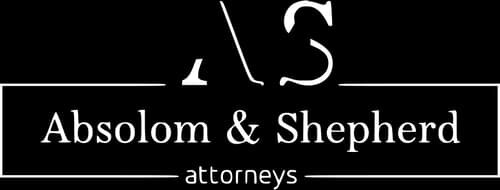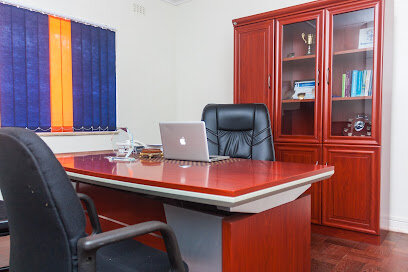Best Lawyers in Zimbabwe
Share your needs with us, get contacted by law firms.
Free. Takes 2 min.
Or refine your search by selecting a city:
List of the best lawyers in Zimbabwe
Zimbabwe Legal Questions answered by Lawyers
Browse our 2 legal questions in Zimbabwe and read the lawyer answers, or ask your own questions for free.
- False accussations
- A neighbour sent someone to tell us to stop throwing poo at his open space premise which is next to us,this came as a surprise as we have toilets of our own whereas they do not have a toilet.A lot of people working at that area do not have any... Read more →
-
Lawyer answer by mohammad mehdi ghanbari
Hello, I am sorry to hear about this distressing situation. Being falsely accused of such unsanitary acts in front of your neighbors and colleagues is not only humiliating but can indeed damage your professional reputation. Based on your description, this...
Read full answer - Marriage
- My husband has 2 wives myself being the second wife. Before we met, he was married to the first wife under civil marriage solemnized under the new Marriages Act [Chapter 5:17], which replaced the former Marriage Act [Chapter 5:11] which is still the current situation between him and the first... Read more →
-
Lawyer answer by Pretty Murove (Partner)
If the marriage between the husband and his first wife is still in existence, you will not be recognised as a spouse for purposes of inheritance as your purported union to him is a nullity at law. Your children will,...
Read full answer
About Hiring a Lawyer in Zimbabwe
Hiring a lawyer in Zimbabwe involves several important steps. First, one must identify the area of legal expertise needed. There are various types of lawyers, such as criminal defense attorneys, commercial lawyers, family lawyers, and more. After determining the specialization required, potential clients should research law firms and independent lawyers. This can be done through directories, referrals, and online searches. It's crucial to verify the credentials of the lawyer or law firm, ensuring they are accredited by the Law Society of Zimbabwe. Initial consultations are often offered, giving clients an opportunity to discuss their case and understand the lawyer’s fees, which may vary depending on the complexity and nature of the legal issue.
Why You May Need a Lawyer
There are numerous scenarios where one might require legal assistance in Zimbabwe. Common situations include navigating divorce proceedings, resolving business disputes, facing criminal charges, dealing with land transactions, and understanding employment rights. Individuals may also need legal help with immigration matters, succession issues, or to draft legal documents such as wills or contracts. A lawyer can provide guidance, represent clients in court, and help ensure that their legal rights are protected.
Local Laws Overview
Zimbabwe’s legal system is a mix of statute, customary law, and common law influences. Key areas include property law, labor law, family and inheritance law, and criminal law. Property law governs ownership and tenancy issues, while labor law addresses employment rights and employer obligations. Family and inheritance law deal with issues such as marriage, divorce, and succession. Additionally, criminal law covers offenses ranging from theft and fraud to more serious crimes. Understanding these laws is essential, and lawyers in Zimbabwe are well-versed in navigating these complex legal areas for their clients.
Frequently Asked Questions
1. How can I verify a lawyer's credentials in Zimbabwe?
Check with the Law Society of Zimbabwe to ensure the lawyer is registered and in good standing.
2. What are the typical legal fees for hiring a lawyer?
Legal fees vary widely based on the case type and complexity. It's important to discuss fees during the initial consultation.
3. What should I bring to my first consultation with a lawyer?
Bring any relevant documents, identification, and a list of questions or concerns you have regarding your situation.
4. Can a lawyer represent me in court if I'm not present?
In certain circumstances, a lawyer can represent you in court, but personal attendance may be required for specific matters.
5. What steps can I take if I'm unhappy with my lawyer's service?
Address the issue directly with the lawyer first. If unresolved, file a complaint with the Law Society of Zimbabwe.
6. How long does it take to resolve a legal matter in Zimbabwe?
Resolution times vary greatly depending on case complexity, court schedules, and other factors, ranging from weeks to years.
7. Are there free legal services available in Zimbabwe?
Several organizations and NGOs provide pro bono legal assistance, especially for vulnerable and low-income individuals.
8. What languages are used in legal proceedings?
English is the primary language used, but translators may be available for those who speak local languages or need assistance.
9. What should I do if I cannot afford a lawyer?
Look for legal aid services or speak to law schools that may offer assistance through their legal clinics.
10. How can I find a specialized lawyer for my needs?
Research online, ask for referrals, or consult the Law Society of Zimbabwe for recommendations based on legal specializations.
Additional Resources
To further support individuals seeking legal advice, the following resources may be helpful:
- The Law Society of Zimbabwe - provides a directory of registered legal professionals.
- ZIMRA (Zimbabwe Revenue Authority) - for tax-related legal queries.
- Women and Law in Southern Africa (WLSA) - assists with gender-based legal issues.
- Legal Resources Foundation (LRF) - offers legal education and advice to underserved communities.
- Zimbabwe Lawyers for Human Rights - focuses on rights-based legal interventions.
Next Steps
If you require legal assistance in Zimbabwe, start by determining the area of law related to your issue and conducting thorough research on potential lawyers or firms. Verify their credentials and arrange an initial consultation to discuss your needs and understand the costs involved. Don’t hesitate to reach out to local or international legal aid organizations if you need financial assistance. Be proactive in gathering relevant documentation and clearly communicate your expectations and concerns to your chosen legal professional.
Lawzana helps you find the best lawyers and law firms in Zimbabwe through a curated and pre-screened list of qualified legal professionals. Our platform offers rankings and detailed profiles of attorneys and law firms, allowing you to compare based on practice areas, experience, and client feedback.
Each profile includes a description of the firm's areas of practice, client reviews, team members and partners, year of establishment, spoken languages, office locations, contact information, social media presence, and any published articles or resources. Most firms on our platform speak English and are experienced in both local and international legal matters.
Get a quote from top-rated law firms in Zimbabwe — quickly, securely, and without unnecessary hassle.
Disclaimer:
The information provided on this page is for general informational purposes only and does not constitute legal advice. While we strive to ensure the accuracy and relevance of the content, legal information may change over time, and interpretations of the law can vary. You should always consult with a qualified legal professional for advice specific to your situation.
We disclaim all liability for actions taken or not taken based on the content of this page. If you believe any information is incorrect or outdated, please contact us, and we will review and update it where appropriate.
Refine your search by selecting a practice area.
Accidents & Injuries
Banking & Finance
Bankruptcy & Debt
Business
Civil & Human Rights
Consumer Rights
Corporate & Commercial
Criminal Defense
Employment & Labor
Energy, Environment & ESG
Family
Immigration
Insurance
Intellectual Property
Lawsuits & Disputes
Media, Technology and Telecoms
Notary Services
Private Client
Real Estate
Browse law firms by city in Zimbabwe
Refine your search by selecting a city.



































